From global superstars U2 to Irish folk legends Christy Moore, Luke Kelly, and the Dubliners, Ireland has produced a wealth of musical talent.
U2
Ireland's most famous band - rockers Bono, the Edge, Adam Clayton, and Larry Mullen Jr - were formed way back in 1976 while attending Dublin's Mount Temple Comprehensive School.
Bono, The Edge, Larry Mullen, and Adam Clayton of the band U2 pose with their award for "Best Rock Performance by a Group" backstage during the 47th Annual Grammy Awards at the Staples Center February 13, 2005 in Los Angeles, California. Image: Getty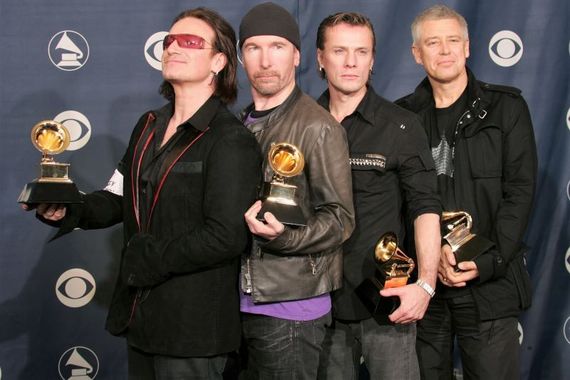
U2 are the only group in music history to have No 1 albums four decades in a row: The 1980s, ’90s, ’00s, and ’10s.
The band have released 14 studio albums and are one of the world's best-selling music artists, having sold an estimated 150–170 million records worldwide. They have won 22 Grammy Awards, more than any other band.
Like so many other Irish artists, U2 have veered into the political landscape. One of their most overtly political songs, "Sunday Bloody Sunday", describes the horror felt by an observer of the Troubles in Northern Ireland, mainly focusing on the 1972 Bloody Sunday incident in Co Derry where British troops shot and killed unarmed civil rights protesters.
Other popular songs by the group include "With Or Without You", "One", "Beautiful Day", "I Still Haven't Found What I'm Looking For", and "Pride (In The Name Of Love)".
Christy Moore
Irish folk singer, songwriter, and guitarist Christy Moore is one of Ireland's best-loved musicians with a career spanning over half a century. In fact, the Co Kildare man was once named Ireland’s greatest living musician by RTÉ’s People of the Year Awards.
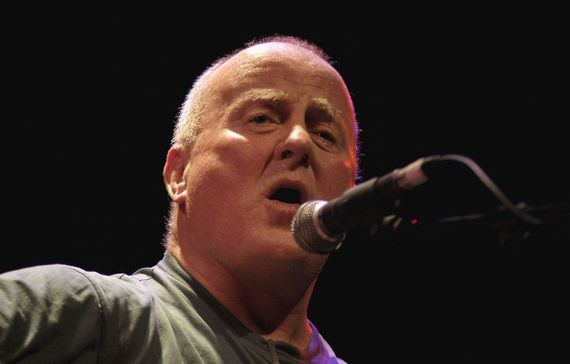
Christy Moore
Moore has released 30 solo albums. His music is renowned for its political and social commentary reflecting his left-wing, Irish republican perspective played through driving rhythms on guitar and the bodhrán as well as slower ballads.
His 1984 album "Ride On" remains the musician's landmark album with a number of songs relating to the actions of those involved in political struggles, or those affected.
Songs dealing with Irish history include "The City of Chicago", about emigration to America during the Great Hunger. "Back Home" in Derry describes the transportation to Australia of convicts and was written by hunger striker Bobby Sands while he was imprisoned in HM Maze Prison in Northern Ireland and "Lisdoonvarna" celebrates a music festival in the Co Clare town that took place until the early 1980s.
"Viva la Quinte Brigada" delves into the Irish contingent amongst the International Brigade in the Spanish Civil War and "El Salvador" deals with the civil war in that country in the 1980s.
Enya
Enya Patricia Brennan is Ireland's top-selling female artist and one of the wealthiest women in the music industry.
Enya (Getty Images)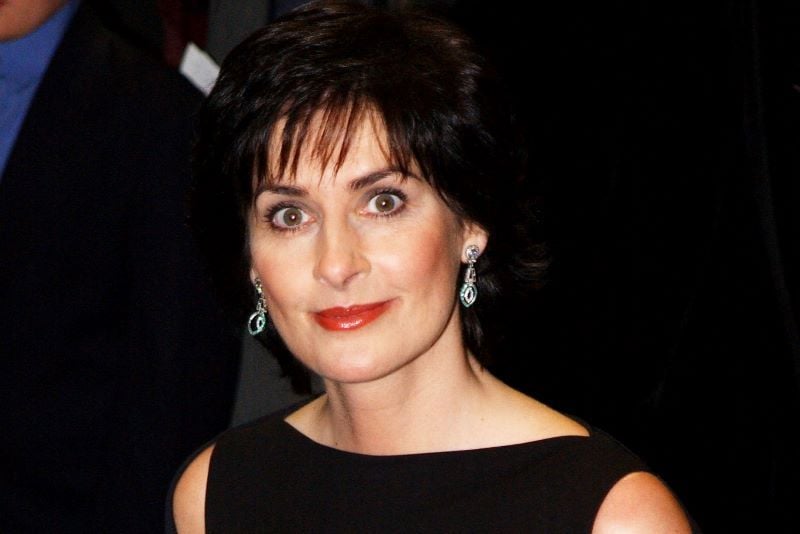
From Gweedore, Co Donegal, Enya began her career in the 1980s, performing traditional Irish music with the family band Clannad before embarking on a hugely successful solo career.
Her distinctive sound characterized by voice-layering, folk melodies, synthesized backdrops, and ethereal reverberations brought her worldwide critical acclaim. Enya's sound incorporates new age, Celtic, classical, church, and folk music.
Enya enjoyed steady success throughout the 1990s and 2000s, performing in 10 languages. Enys has sold 26.5 albums in the United States and an estimated 80 million records worldwide, making her one of the bestselling music artists of all time.
Her 2000, album "A Day Without Rain" became the top-selling album in the US with 15 million copies sold. Following 9/11, sales of the album and its lead single, "Only Time", skyrocketed after it was used by several radio and television networks in their coverage and aftermath of the attacks.
Enya has won four Grammy Awards for Best New Age Album.
The Cranberries
Hailing from Co Limerick, alternative rock group The Cranberries rose to worldwide fame in the 1990s and went on to sell over 40 million records, including 14 million in the US.
The Cranberries in 1999 (RollingNews.ie)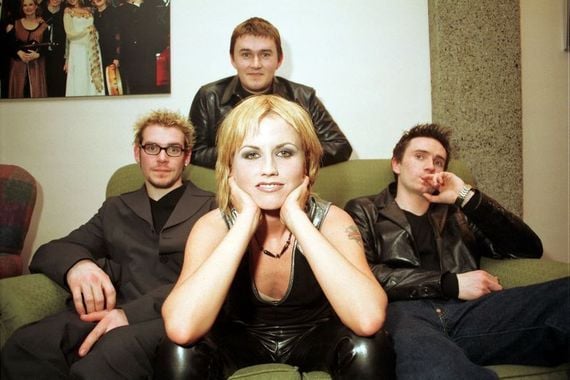
Fronted by the iconic voice of lead singer Dolores O'Riordan, who tragically passed away in 2018, The Cranberries channeled a wide range of emotions, from the longing and melancholy of unrequited love to the anger and pain of The Troubles in Northern Ireland.
"Linger" was their first big hit but "Dreams" was, in fact, the first single they released, back in 1992. The protest song "Zombie" was written about the 1993 IRA bombing in Warrington, England, and in memory of two young victims, Johnathan Ball and Tim Parry.
The Pogues
One of the most iconically Irish bands of the past 30 years was formed in Kings Cross, London and was technically an English-formed band. Lead singer Shane MacGowan was born to Irish parents in Pembury, Kent on Christmas Day in 1957.
The Pogues performing in New York City in 2011 (Getty Images)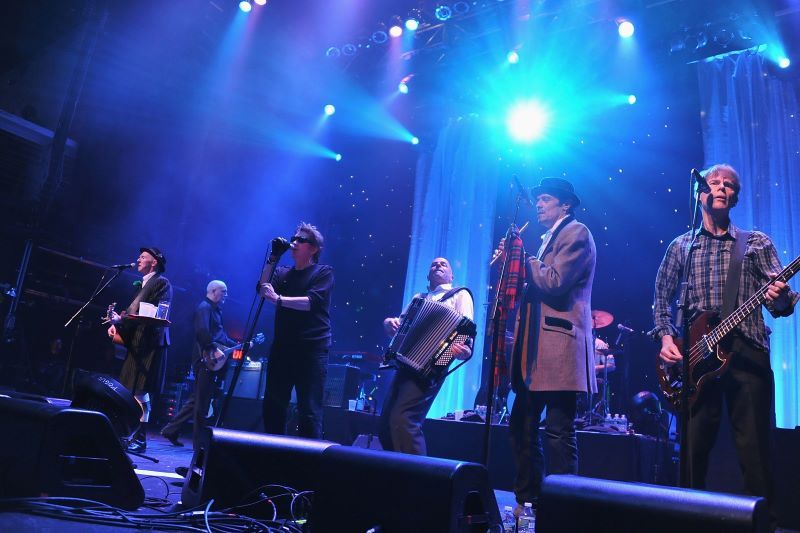
In fact, there was initial public resistance because the band was not seen as Irish. It wasn’t until The Pogues recorded and performed on the Late Late Show with The Dubliners that people came around to them.
The first to take a punk ethos and blend it with the traditional Irish sound of mandolins, tin whistles, and citterns, The Pogues brought Celtic flavor to the punk-loving masses.
The band started as Pogue Mahone (meaning "Kiss My Arse" in Irish when pronounced), but shortened their name to The Pogues, partly due to BBC censorship following complaints from Gaelic speakers in Scotland.
Famed for the Christmas classic "Fairytale in New York", some classics for your playlist include "Dirty Old Town", "A Pair of Brown Eyes", and "A Rainy Night In Soho."
The Dubliners
Irish folk band The Dubliners were hugely popular for over 50 years. The band endured many line-up changes. but the group's success was centered on lead singers Luke Kelly and Ronnie Drew. The band garnered international success with their lively Irish folk songs, traditional street ballads, and instrumentals.
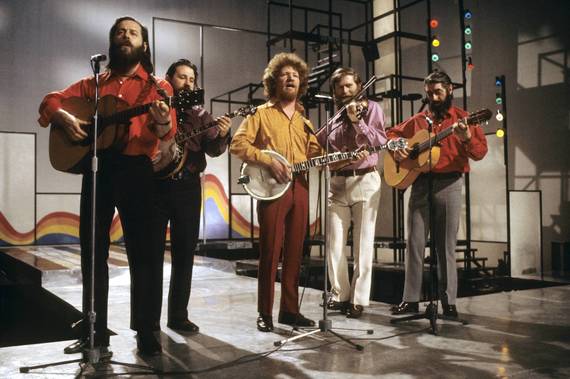
The Dubliners.
Like so many other popular Irish folk musicians, they often performed controversial political songs and drew criticism from folk purists and Ireland's national broadcaster RTÉ placed an unofficial ban on their music from 1967 to 1971.
However, during this time the band's popularity began to spread across mainland Europe and they appeared on The Ed Sullivan Show in the US. The group's success remained steady right through the 1970s and a number of collaborations with The Pogues in 1987 saw them enter the UK Singles Chart on another two occasions.
Luke Kelly
Luke Kelly is one of Ireland’s greatest folk singers and probably its most iconic. His powerfully distinct and coarse voice was full of emotion and "Raglan Road", a robust ballad he put to the words of Patrick Kavanagh's poem at the poet's suggestion.
Kelly took the traditional tune "The Dawning of the Day" and married it to Kavanagh's plaintive tale of his unrequited love for Hilda Moriarty, who married Fianna Fáil minister Donough O'Malley. The song was featured in the film "In Bruges", which starred Irish actors Colin Farrell and Brendan Gleeson.
Kelly's version of "Scorn Not His Simplicity", a song written by Irish musician and songwriter Phil Coulter is deeply moving as it describes his first son being born with Down Syndrome.
Kelly died of a brain tumor in 1984, aged just 43 years old and the Ballybough Bridge in Dublin was renamed the Luke Kelly Bridge.
The Corrs
Combining pop rock with traditional Irish themes and keeping it all in the family, Dundalk siblings Andrea, Sharon, Caroline and Jim Corr found international fame in the 1990s, going on to sell 40 million albums.
The Breathless singing group released their sixth studio album in 2015 after a ten-year break, following up with the seventh album in 2017.
Sinéad O'Connor
Singer-songwriter Sinéad O Connor rose to fame in the late 1980s with her debut album The Lion and the Cobra but achieved worldwide success in 1990 with a new arrangement of Prince's song "Nothing Compares 2 U".
O'Connor has courted controversy her entire career, famously ripping up a picture of John Paul II as a protest against the sexual abuse of children in the Catholic Church.
Hozier
Co Wicklow's Hozier broke onto the international stage with his mid-tempo soul single "Take Me To Church" in 2013 which was certified multi-platinum in several countries, including the US, the UK, and Canada.
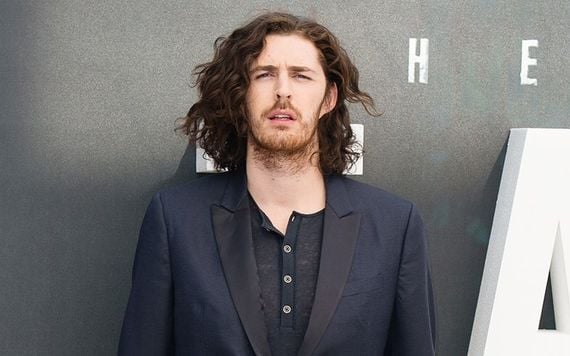
Hozier (Getty Images)
Its lyrics use religious terminology to describe a romantic relationship, and he wrote and recorded the song in the attic of his parent's home in Bray, Co Wicklow. Upon release, its music video went viral as it follows a relationship between two men and subsequent violent homophobic backlash.
Who is your favorite Irish musician? Let us know in the comments!
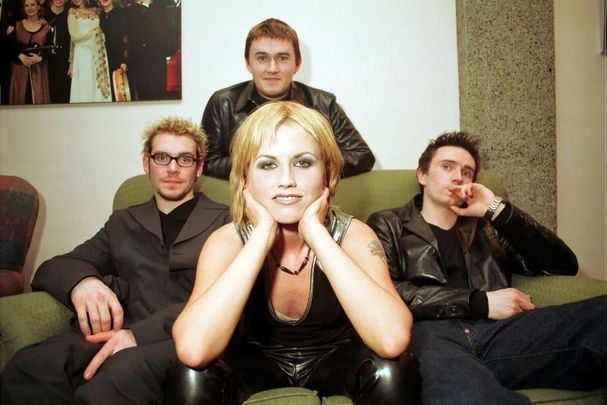



Comments